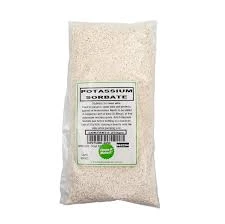
Benefits of Rosemary Extract as a Natural Food Preservative and Flavor Enhancer
Rosemary Extract as a Food Additive A Natural Antioxidant
In recent years, the demand for natural food additives has surged, driven by a growing consumer inclination towards health-conscious diets and the avoidance of synthetic preservatives. One such natural additive that has gained prominence is rosemary extract, derived from the leaves of the rosemary plant (Rosmarinus officinalis). This herb not only serves culinary purposes but also boasts significant health benefits, primarily due to its potent antioxidant properties.
Rosemary extract is rich in various phytochemicals, including rosmarinic acid, carnosic acid, and flavonoids. These compounds are known for their ability to scavenge free radicals—unstable molecules that can cause oxidative stress in the body and are linked to various chronic diseases, including heart disease, cancer, and neurodegenerative disorders. By incorporating rosemary extract into food products, manufacturers can not only enhance flavor but also improve the nutritional profile of their offerings.
Rosemary Extract as a Food Additive A Natural Antioxidant
In addition to its antioxidant properties, rosemary extract also demonstrates antimicrobial activity. Research suggests that certain compounds within rosemary can inhibit the growth of bacteria and fungi that cause food spoilage. This dual action—preventing oxidation and microbial growth—makes rosemary extract a valuable ingredient for food manufacturers looking to enhance the safety and longevity of their products without resorting to artificial additives.
rosemary extract food additive

The use of rosemary extract is widespread across various food categories, including meats, baked goods, sauces, and dairy products. In the meat industry, for instance, rosemary extract has been successfully utilized in processed meats to maintain freshness and inhibit spoilage. Moreover, it offers a distinct flavor profile, which can enhance the overall sensory experience of the product.
When considering the usage of rosemary extract in food, it’s essential to note that its antioxidant capacity can be influenced by factors such as concentration, extraction method, and food matrix. Generally, higher concentrations yield more potent effects, but the taste must be carefully balanced to avoid overwhelming the product.
As consumers increasingly scrutinize food labels, the appeal of natural additives like rosemary extract becomes more pronounced. Many shoppers now prefer products that are preserved with natural ingredients rather than synthetic ones, making rosemary extract an attractive choice for food producers aiming to meet these market demands. Its status as Generally Recognized As Safe (GRAS) by regulatory bodies further reinforces its suitability for widespread usage in the food industry.
In conclusion, rosemary extract is more than just a flavorful herb; it is a powerful natural food additive that provides both antioxidant and antimicrobial benefits. As food safety and health become paramount in consumer decisions, the incorporation of rosemary extract into various food products represents a strategic move for manufacturers. By harnessing the benefits of this natural compound, food producers can not only improve the quality and safety of their offerings but also cater to the increasing preference for clean-label products. Thus, rosemary extract stands as a quintessential example of how traditional ingredients can play a modern role in food science and technology.
-
Buy High-Quality Trichloroisocyanuric Acid for Sale | TCCA 90% SupplierNewsAug.30,2025
-
Pure Sodium Dichloroisocyanurate Dihydrate | Powerful DisinfectantNewsAug.29,2025
-
Industrial Chemicals: Quality & Purity for Every IndustryNewsAug.28,2025
-
Nitrile Rubber Honoring Strict Production StandardsNewsAug.22,2025
-
Aspartame Ingredients Honoring Food Safety ValuesNewsAug.22,2025
-
Fertilizer for Balanced Plant NutritionNewsAug.22,2025
-
Cyanide Gold Processing with High Purity AdditivesNewsAug.22,2025
Hebei Tenger Chemical Technology Co., Ltd. focuses on the chemical industry and is committed to the export service of chemical raw materials.
-

view more DiethanolisopropanolamineIn the ever-growing field of chemical solutions, diethanolisopropanolamine (DEIPA) stands out as a versatile and important compound. Due to its unique chemical structure and properties, DEIPA is of interest to various industries including construction, personal care, and agriculture. -

view more TriisopropanolamineTriisopropanolamine (TIPA) alkanol amine substance, is a kind of alcohol amine compound with amino and alcohol hydroxyl, and because of its molecules contains both amino and hydroxyl. -

view more Tetramethyl Thiuram DisulfideTetramethyl thiuram disulfide, also known as TMTD, is a white to light-yellow powder with a distinct sulfur-like odor. It is soluble in organic solvents such as benzene, acetone, and ethyl acetate, making it highly versatile for use in different formulations. TMTD is known for its excellent vulcanization acceleration properties, which makes it a key ingredient in the production of rubber products. Additionally, it acts as an effective fungicide and bactericide, making it valuable in agricultural applications. Its high purity and stability ensure consistent performance, making it a preferred choice for manufacturers across various industries.





